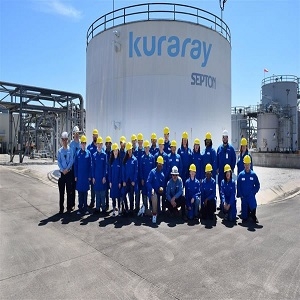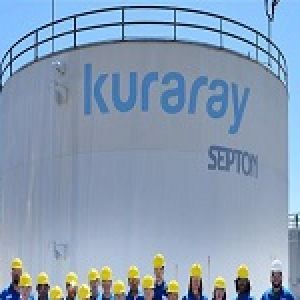The Game-Changer in PVC Suspension ProcessesPosted by kuraraypovalin on March 20th, 2024  PVA, a water-soluble synthetic polymer, is celebrated for its exceptional properties, including high tensile strength, flexibility, and resistance to oil, grease, and solvents. On the other hand, PVC, a widely used plastic, is known for its durability, chemical resistance, and versatility in products ranging from construction materials to clothing. The intersection of these two materials, particularly in using PVC suspending agent in production, represents a fascinating evolution in polymer technology, offering enhanced performance and environmental benefits. The Role of Polyvinyl Alcohol in PVC Production
PVA's journey in PVC production is marked by its critical role as a suspending agent. This function is pivotal in the polymerization process, where PVA helps to stabilize the vinyl chloride monomer (VCM) droplets, facilitating a uniform polymerization reaction. The suspending agent's task is to ensure that the VCM droplets are evenly distributed throughout the reaction medium, preventing them from coalescing or settling. This distribution is crucial for producing PVC with consistent quality and desirable physical properties. The effectiveness of PVC suspending agent is attributed to its unique properties. Its water solubility allows it to form a stable colloidal solution, which is ideal for suspension polymerization processes. Moreover, PVA exhibits excellent film-forming abilities, enabling it to encapsulate each VCM droplet with a protective layer. This layer maintains the droplet's integrity during polymerization and controls the reaction rate, leading to PVC with a more uniform molecular weight distribution.
Advantages of Using PVA in PVC Production Incorporating PVA as a suspending agent in PVC production brings several advantages. It enhances the control over the polymerization process, allowing for the manufacture of PVC with specific characteristics tailored to various applications. For instance, using PVA can produce PVC with different degrees of porosity, impacting the material's strength, flexibility, and processing behavior. Moreover, PVA's biodegradability and non-toxicity offer environmental benefits over traditional petroleum-based suspending agents. This attribute aligns with the growing demand for sustainable and eco-friendly manufacturing processes. By reducing the reliance on non-renewable resources and minimizing toxic by-products, PVA contributes to a greener polymer industry.
Challenges and Future Perspectives Despite its benefits, using PVA in PVC production is challenging. One of the primary concerns is the cost associated with PVA, which is the exceptionally high-quality grades required for effective suspension polymerization. Additionally, removing PVA from the final PVC product can be energy-intensive, necessitating the development of efficient extraction and recycling methods. Future research in this area will likely focus on enhancing the efficiency and sustainability of PVA as a suspending agent. Innovations may include developing PVA derivatives with improved performance characteristics or exploring bio-based alternatives that offer similar or superior properties. The ultimate goal is to balance product quality, environmental impact, and economic viability.
Conclusion
polyvinyl alcohol material role as a PVC suspending agent represents a significant advancement in polymer technology. By leveraging PVA's unique properties, manufacturers can produce PVC with enhanced qualities tailored to various applications. The environmental benefits of using PVA and its performance advantages underscore its potential as a game-changer in the polymer industry. As research continues to address the challenges and explore new possibilities, the integration of PVA in PVC production is poised for further innovation, contributing to a more sustainable and efficient materials landscape. In the quest for more sustainable and environmentally friendly manufacturing processes, polyvinyl alcohol (PVA) as a PVC suspending agent exemplifies a forward-thinking approach to polymer science. This strategy reflects a commitment to reducing environmental impact and highlights the versatility and adaptability of polymers in modern industrial applications. PVA's role transcends its function as a stabilizer in the PVC polymerization process; it embodies integrating green chemistry principles into traditional manufacturing practices. Exploring PVA in PVC production also opens doors to innovative applications beyond its primary role. For example, PVC's controlled porosity and particle size achieved through PVA-assisted suspension polymerization can be critical in developing high-performance filtration systems, lightweight construction materials, and advanced medical devices. These applications demonstrate the potential of PVA to contribute to the development of materials that meet technical and performance requirements and address environmental and health concerns. Researchers are continually exploring new ways to leverage PVA's unique properties, such as its biocompatibility and chemical resistance, to enhance the performance of a wide range of polymeric materials. This ongoing innovation positions PVA as a cornerstone in the evolution of polymer technology, paving the way for more sustainable, efficient, and versatile material solutions in industries ranging from healthcare to construction and beyond. Author’s Bio: Sarah is an experienced writer and holds years of experience in product analysis. She writes for Kuraray-Poval. Like it? Share it!More by this author |


